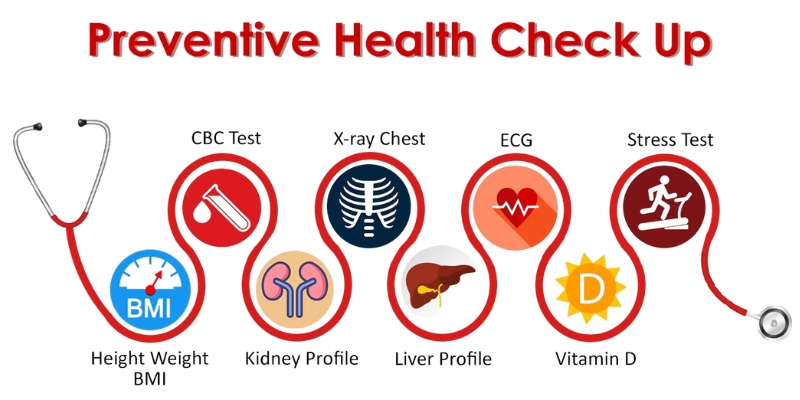
The majority of individuals avoid routine health examinations, which can lead to major health issues down the road or even death from diseases that should have been avoided in the first place. Preventive health examinations are essential for preventing illnesses and preserving health. Preventive health checkups are primarily intended to reduce the chance of developing certain diseases and medical problems and to prevent disease altogether. helps to retain perfect health as a result.
Lifestyle illnesses afflict people between the ages of 35 and 65. The international agreement, considering the situation, is that women over 40 and men over 35 should have preventative health examinations. Starting screening tests ten years early is advised if there is a family history of a specific disease or if the youngest family member has a condition like diabetes or coronary heart disease.
Exercise, a healthy diet, disease prevention vaccinations, and regular checkups with a doctor are all part of the preventative method. It is simple to fight a disease in its early stages. Even with appropriate therapy, the patient finds it more difficult to fight the illness as it worsens. Certain symptoms and indicators are not readily evident, yet if left untreated, they can lead to sickness.
Preventive health examinations, which include routine screening, blood tests, and X-rays, can identify the symptoms and indicators. Preventive health examinations yield reliable findings. For people who are at risk for a number of illnesses, preventive health examinations are crucial.
A routine health examination aids in the diagnosis and treatment of illnesses that can develop into chronic ones if unchecked. A person’s age, sex, and lifestyle all influence the tests and lab work that are recommended. In addition to strengthening the bond between the patient and the physician, these examinations enable the latter to encourage a healthy lifestyle through patient education and counselling.